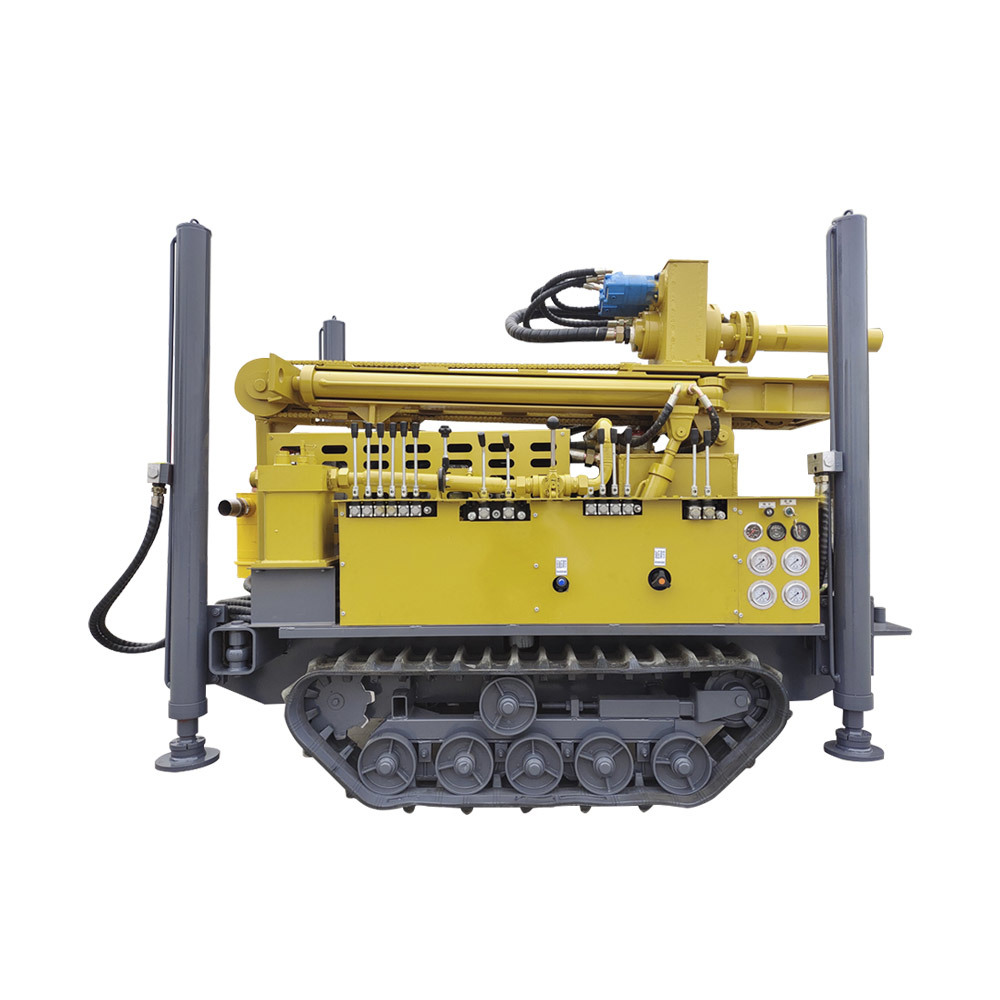Mini Water Borehole Rigs: Essential Insights for Contractors
Aug 15,2025

Introduction to Mini Water Borehole Rigs
In the ever-evolving landscape of construction and engineering, the demand for efficient water extraction methods has surged. **Mini water borehole rigs** have emerged as a **versatile solution** for contractors looking to tap into underground water sources with precision and minimal disruption. This article delves into the essential aspects of mini water borehole rigs, providing contractors the insights needed to optimize their use in projects.
Understanding Mini Water Borehole Rigs
Mini water borehole rigs are specialized drilling machines designed to create boreholes for groundwater extraction. Their compact design allows them to operate in constrained spaces, making them ideal for urban environments or remote locations. They differ from traditional drilling rigs in size, capability, and operational method, offering unique advantages that contractors can leverage.
Types of Mini Water Borehole Rigs
There are various types of mini water borehole rigs available, each tailored to specific drilling requirements. These include:
- **Hydraulic Borehole Rigs**: Known for their power and efficiency, hydraulic rigs are ideal for deeper boreholes and harder ground conditions.
- **Air-Driven Rigs**: These rigs utilize compressed air for drilling and are particularly effective in softer soils.
- **Rotary Drilling Rigs**: Perfect for a variety of soil conditions, rotary rigs provide flexibility in drilling depth and borehole diameter.
Understanding the differences among these rig types helps contractors select the most suitable option for their specific needs.
Importance of Mini Water Borehole Rigs in Modern Construction
The significance of mini water borehole rigs in the construction industry cannot be overstated. They serve multiple purposes, including:
- **Water Supply for Construction Sites**: Providing essential water for mixing concrete and other construction activities.
- **Site Investigations**: Assisting in geological surveys to assess soil and water conditions, ensuring safer and more effective construction methods.
- **Environmental Monitoring**: Allowing for the extraction of water samples for quality testing, aiding compliance with environmental regulations.
As urbanization continues to grow, the relevance of mini water borehole rigs in various construction projects becomes increasingly clear.
Key Considerations for Contractors
When investing in mini water borehole rigs, contractors must consider several crucial factors.
Rig Capacity and Specifications
Contractors should evaluate the rig"s capacity to determine its suitability for specific projects. Important specifications to consider include:
- **Drilling Depth**: Assess the maximum depth the rig can efficiently reach.
- **Borehole Diameter**: Understand the size of the borehole to ensure it meets project requirements.
- **Weight and Size**: Consider the rig"s dimensions and weight, particularly for transportation and operation in confined spaces.
Matching the rig"s capabilities to project demands is essential for effective performance.
Mobility and Portability
The ability to transport and set up a mini water borehole rig quickly is paramount. Contractors should look for rigs that feature:
- **Compact Design**: Smaller rigs are easier to maneuver in tight spaces, making them perfect for urban projects.
- **Transport Options**: Consider whether the rig can be easily transported by truck or trailer, ensuring minimal downtime during job transitions.
A mobile rig enhances operational efficiency and reduces project timelines.
Fuel Efficiency and Operational Costs
Understanding the fuel consumption of a mini water borehole rig can significantly affect project budgets. Contractors should assess:
- **Fuel Type**: Diesel engines may offer better efficiency compared to gasoline options.
- **Operational Costs**: Calculate the total cost of ownership, including maintenance and fuel, to make informed financial decisions.
Selecting a fuel-efficient rig can lead to substantial savings over time.
Maintenance and Serviceability
Regular maintenance is critical to prolonging the life of a mini water borehole rig. Contractors should consider:
- **Accessibility for Repairs**: Ensure that components are easily accessible for servicing, reducing downtime.
- **Manufacturer Support**: Choose a rig from a manufacturer that offers robust customer support and readily available parts.
Implementing a proactive maintenance plan can prevent costly breakdowns and enhance operational reliability.
Best Borehole Drilling Practices
To achieve optimal results when using mini water borehole rigs, contractors should adhere to best drilling practices.
Preparation and Planning
Before starting any drilling project, thorough preparation is essential:
- **Site Assessment**: Conduct a geological survey to understand the soil composition and water table depth.
- **Permits and Regulations**: Ensure all necessary permits are obtained and regulations are followed to avoid legal complications.
Drilling Techniques
Utilizing the appropriate drilling technique can enhance efficiency:
- **Rotation Speed**: Adjust the rig’s rotation speed according to soil conditions to maximize penetration rates.
- **Water Usage**: Use water effectively to cool the drill bit and remove cuttings from the borehole.
Implementing these techniques not only improves drilling efficiency but also minimizes environmental impact.
Safety Considerations in Water Borehole Drilling
Safety should be a top priority for contractors engaged in borehole drilling. Key safety measures include:
- **Personal Protective Equipment (PPE)**: Ensure all crew members wear appropriate PPE, such as helmets, gloves, and eye protection.
- **Training**: Regularly train staff on safety protocols and emergency procedures related to borehole drilling.
Establishing a safety culture on-site is vital for protecting workers and ensuring project success.
Future Trends in Water Borehole Drilling Technology
The water borehole drilling industry is constantly evolving. Several trends are shaping its future:
- **Automation and Robotics**: Increased reliance on automation to enhance precision and reduce labor costs.
- **Sustainable Practices**: Growing emphasis on eco-friendly drilling methods and equipment to minimize environmental impact.
Staying informed about these trends can help contractors remain competitive in a rapidly changing market.
Frequently Asked Questions
1. What is a mini water borehole rig?
A mini water borehole rig is a compact drilling machine designed specifically for creating boreholes to extract water from underground sources.
2. How deep can mini water borehole rigs drill?
The drilling depth depends on the rig"s specifications, with most mini rigs capable of reaching depths of up to 100 meters or more, depending on the soil conditions.
3. What are the advantages of using mini water borehole rigs over traditional rigs?
Mini water borehole rigs offer greater maneuverability in confined spaces, lower operational costs, and often require less setup and teardown time than larger rigs.
4. Are mini water borehole rigs easy to maintain?
Yes, many mini water borehole rigs are designed for easy maintenance, with components that are accessible for repairs and servicing. Regular maintenance helps ensure optimal performance and longevity.
5. What safety measures should be taken during borehole drilling?
Contractors should prioritize safety by providing personal protective equipment (PPE), conducting regular safety training, and following established drilling protocols to minimize risks and ensure worker safety.
Conclusion
Selecting the right mini water borehole rig is a multifaceted decision that can significantly impact the success of a construction project. By understanding the various factors involved—such as rig specifications, mobility, operational costs, and safety considerations—contractors can make informed choices that enhance efficiency and productivity. Embracing best practices and staying abreast of emerging trends in the industry will further empower contractors to excel in their projects. As the demand for water extraction continues to grow, mini water borehole rigs will remain an indispensable tool for modern construction contractors.








